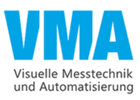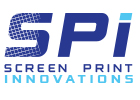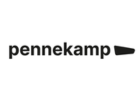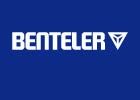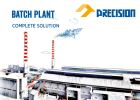To make glass panes safe for birds, these laser processing systems from Cericom can help glass processors to produce bird protection glass directly from float glass. Here are the details.
It is important to reduce the risk of birds impacting buildings and to take their protection into account when constructing new buildings. But how to achieve that without compromising the aesthetics of the glass? With suitable bird protection glass.
What is bird protection glass?
Bird protection glass is glass that is visible to birds as an obstacle and helps prevent the death of many of them. For more basics, see also yesterday’s instalment of our series on bird protection glass.
In the past, black stickers in the shape of raptor-like birds were placed on glass panes and large windows as a deterrent. These turned out to be ineffective.
Today, stickers with patterns such as stripes or dots, fly screens, special window paint or cord curtains are recommended as protection. However, these are often unappealing options, which in practice are sometimes impossible to implement in large buildings. At the same time, they block the view outside.
An alternative to this is bird screen glass, which is produced with the help of laser processing.
How exactly is a bird protection glass produced by laser?
The laser manipulates the glass in such a way that the transparency or the reflections of the glass are broken. As a result, birds can see the surface immediately and no longer fly against it.
Laser machines such as the c-vertica or the c-matrix from the German manufacturer Cericom (part of the Lisec Group) make glass processing and thus production of bird protection glass easy.
The space-saving c-vertica can ablate glass in very thin layers and work the finest structures into the surface as well as mark within the glass material. A great advantage of internal engraving is that the engraved pattern is thus in the glass and not on the surface and is therefore not susceptible to dirt or wear.
Possible fields of application
Bird protection glass can be used in all outdoor areas: From facades, parapets, windows and partitions to soundproof walls, conservatories, terrace and balcony glazing, to name just a few.
Shapes and structures can be automatically worked into the glass, and the de-coating of glass is also possible. Glass companies can use the laser system to work with a variety of glass types, including float glass, laminated glass, insulating glass etc.
Details of the c-vertica laser system
The c-vertica can be used wherever horizontal alignment of the glass is not possible or not required.
Handling of the glass sheets is easy with the laser system, as the glass sheets can be placed horizontally on the machine instead of being laid flat. This means that even door-size glass formats can be set up by a single operator.
According to the developers, the glass panes stand on the machine at an inclination of 6 degrees and are at the same time well protected from scratches and other damage by the use of soft rollers or support elements.
The c-matrix for heavy-duty use
With the c-matrix, Cericom provides glass processors with a particularly robust machine concept. This machine type can be used wherever glass is to be processed horizontally.
The base frames are manufactured as heavy steel constructions with milled guideways. Depending on the main application, the manufacturer offers the machine table in a closed or open design.
The c-matrix systems are supplied by Cericom as hybrid and single-laser versions. Operators can either engrave internally with a solid-state laser or process the surface of glass using a CO2 laser. In addition, both applications can be carried out on a single machine.






